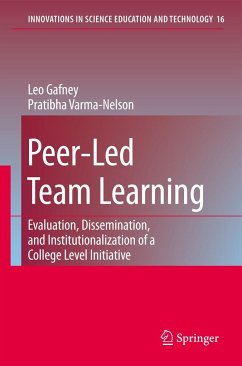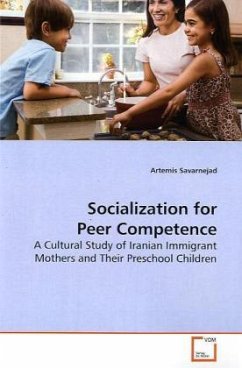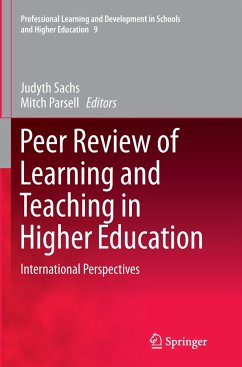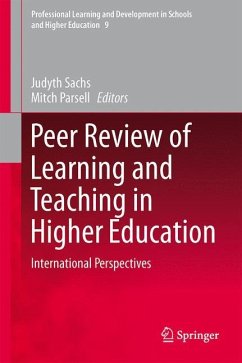
Peer interaction in university-level distance education
Reasons for interaction, communication methods used, and the perceived value of peer interaction in academic success
Versandkostenfrei!
Versandfertig in 6-10 Tagen
32,99 €
inkl. MwSt.

PAYBACK Punkte
16 °P sammeln!
Worldwide, the use of the Internet to deliverinstruction has increased exponentially. Coursemanagement systems (CMS) are widely used to delivercourses completely at a distance. Implications andrecommendations for higher education institutionsinclude promoting best practices, providingfunctional policies and procedures centered onstudent learning, and providing faculty training andservices to facilitate meaningful learning outcomes.The role of distance education and thespecializations of experts in the field is changing. As distance education enrollment and competitionincrease, stakeholders wil...
Worldwide, the use of the Internet to deliver
instruction has increased exponentially. Course
management systems (CMS) are widely used to deliver
courses completely at a distance. Implications and
recommendations for higher education institutions
include promoting best practices, providing
functional policies and procedures centered on
student learning, and providing faculty training and
services to facilitate meaningful learning outcomes.
The role of distance education and the
specializations of experts in the field is changing.
As distance education enrollment and competition
increase, stakeholders will be required to have a
formal knowledge in the field, and an immense
understanding of using the theoretical approaches to
administer distance education programs. Practitioners
will need to maintain an awareness of the historical
significance of distance education. They will need to
provide an environment where learning thrives, is
driven by pedagogy, and is fueled by innovative
instructional technologies.
instruction has increased exponentially. Course
management systems (CMS) are widely used to deliver
courses completely at a distance. Implications and
recommendations for higher education institutions
include promoting best practices, providing
functional policies and procedures centered on
student learning, and providing faculty training and
services to facilitate meaningful learning outcomes.
The role of distance education and the
specializations of experts in the field is changing.
As distance education enrollment and competition
increase, stakeholders will be required to have a
formal knowledge in the field, and an immense
understanding of using the theoretical approaches to
administer distance education programs. Practitioners
will need to maintain an awareness of the historical
significance of distance education. They will need to
provide an environment where learning thrives, is
driven by pedagogy, and is fueled by innovative
instructional technologies.












